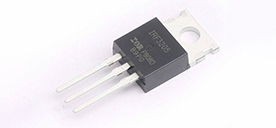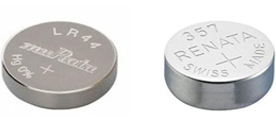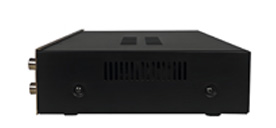Medical Electronics and MCU: Infinite Possibilities for the Future
2023/12/28 9:33:52
Views:
In the field of medical electronics, with continuous technological advancement, the demand for microcontrollers is gradually rising. Microcontroller, called micro control unit (MCU) in Chinese, or single-chip microcomputer or single-chip microcomputer, integrates CPU, RAM, ROM, timer and various I/O interfaces, forming a highly integrated Chip-scale computers. MCU is widely used in various occasions due to its small size, light weight, low cost, high reliability and other characteristics, providing technical support.
In the field of medical electronics, the application of MCU continues to expand, providing important support for the intelligence, portability and low power consumption of medical equipment. The specific applications of MCU in medical electronics will be discussed below.
1. Wide application of MCU in medical electronics
1. Data collection and processing: MCU can be used to collect various physiological parameters, including ECG signals, blood pressure, body temperature, etc., and efficiently process and analyze these data.
2. Equipment control: MCU is widely used in the control of medical equipment, such as switching equipment, adjusting parameters, etc., which improves the accuracy and controllability of medical equipment.
3. Communication function: MCU supports data transmission and communication between medical equipment, as well as information interaction between medical staff and equipment, improving the efficiency of medical services.
4. Fault diagnosis: MCU can monitor the operating status of medical equipment. Once an abnormality is discovered, it can promptly issue an alarm and perform fault diagnosis, which improves the safety and reliability of the equipment.
5. Portability and low power consumption: The miniaturization and low power consumption of MCU make medical equipment lighter and easier to carry, while reducing energy consumption, which is conducive to mobile treatment and long-term use of patients.
2. Specific application cases of MCU in medical electronics
1. ECG monitor: The MCU is responsible for collecting ECG data, processing and analyzing the data, and at the same time controlling the switch and alarm functions of the monitor. Advanced monitors even support remote monitoring, transmitting data to the doctor's workstation or mobile phone through the MCU, improving patient monitoring.
2. Ultrasound diagnostic instrument: MCU is used to control the transmission and reception of ultrasonic waves, as well as signal processing and image display. Precise control and processing of these functions enable the ultrasonic diagnostic instrument to provide high-quality medical images.
3. Ventilator: The MCU controls the inhalation and exhalation actions of the ventilator, while monitoring the patient's breathing to ensure the accuracy and safety of respiratory treatment.
4. Hemodialysis machine: MCU controls various parameters during the hemodialysis process, including blood pumps, dialysate pumps and temperature control. It also monitors the operating status of the equipment and the patient's vital signs to ensure the effectiveness and safety of dialysis treatment.
3. Conclusion
The application of MCU in the field of medical electronics will continue to expand. With the continuous development of technology, the performance and functions of MCU will continue to improve. In the future, more high-performance, low-power, safe and reliable MCU products will be put into the field of medical electronics and contribute more to the progress of the medical industry. With the innovation of MCU technology, medical equipment will be more intelligent and precise, providing better medical services to patients.
In the field of medical electronics, the application of MCU continues to expand, providing important support for the intelligence, portability and low power consumption of medical equipment. The specific applications of MCU in medical electronics will be discussed below.
1. Wide application of MCU in medical electronics
1. Data collection and processing: MCU can be used to collect various physiological parameters, including ECG signals, blood pressure, body temperature, etc., and efficiently process and analyze these data.
2. Equipment control: MCU is widely used in the control of medical equipment, such as switching equipment, adjusting parameters, etc., which improves the accuracy and controllability of medical equipment.
3. Communication function: MCU supports data transmission and communication between medical equipment, as well as information interaction between medical staff and equipment, improving the efficiency of medical services.
4. Fault diagnosis: MCU can monitor the operating status of medical equipment. Once an abnormality is discovered, it can promptly issue an alarm and perform fault diagnosis, which improves the safety and reliability of the equipment.
5. Portability and low power consumption: The miniaturization and low power consumption of MCU make medical equipment lighter and easier to carry, while reducing energy consumption, which is conducive to mobile treatment and long-term use of patients.
2. Specific application cases of MCU in medical electronics
1. ECG monitor: The MCU is responsible for collecting ECG data, processing and analyzing the data, and at the same time controlling the switch and alarm functions of the monitor. Advanced monitors even support remote monitoring, transmitting data to the doctor's workstation or mobile phone through the MCU, improving patient monitoring.
2. Ultrasound diagnostic instrument: MCU is used to control the transmission and reception of ultrasonic waves, as well as signal processing and image display. Precise control and processing of these functions enable the ultrasonic diagnostic instrument to provide high-quality medical images.
3. Ventilator: The MCU controls the inhalation and exhalation actions of the ventilator, while monitoring the patient's breathing to ensure the accuracy and safety of respiratory treatment.
4. Hemodialysis machine: MCU controls various parameters during the hemodialysis process, including blood pumps, dialysate pumps and temperature control. It also monitors the operating status of the equipment and the patient's vital signs to ensure the effectiveness and safety of dialysis treatment.
3. Conclusion
The application of MCU in the field of medical electronics will continue to expand. With the continuous development of technology, the performance and functions of MCU will continue to improve. In the future, more high-performance, low-power, safe and reliable MCU products will be put into the field of medical electronics and contribute more to the progress of the medical industry. With the innovation of MCU technology, medical equipment will be more intelligent and precise, providing better medical services to patients.
Related Information
-
-
Phone
+86 135 3401 3447 -
Whatsapp





